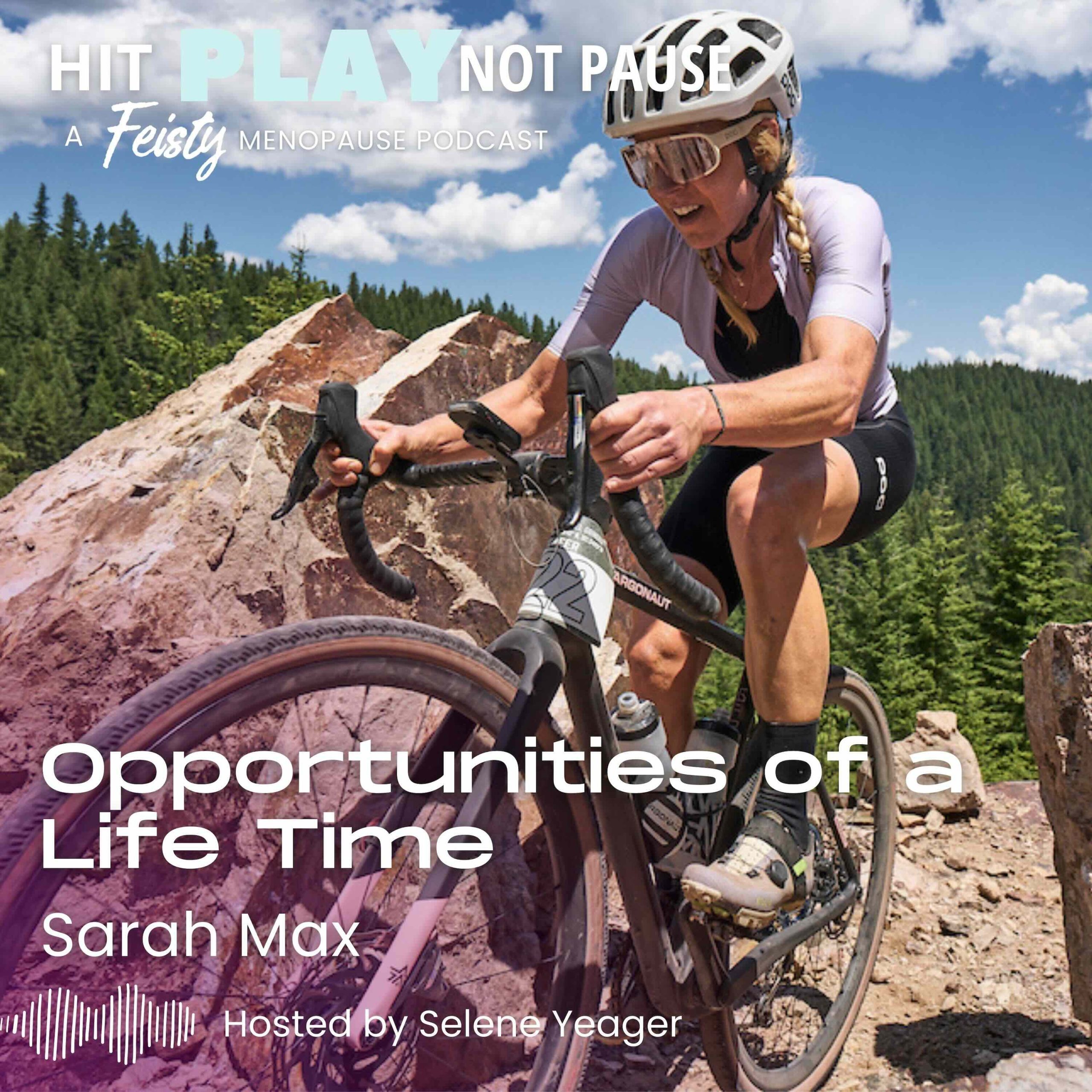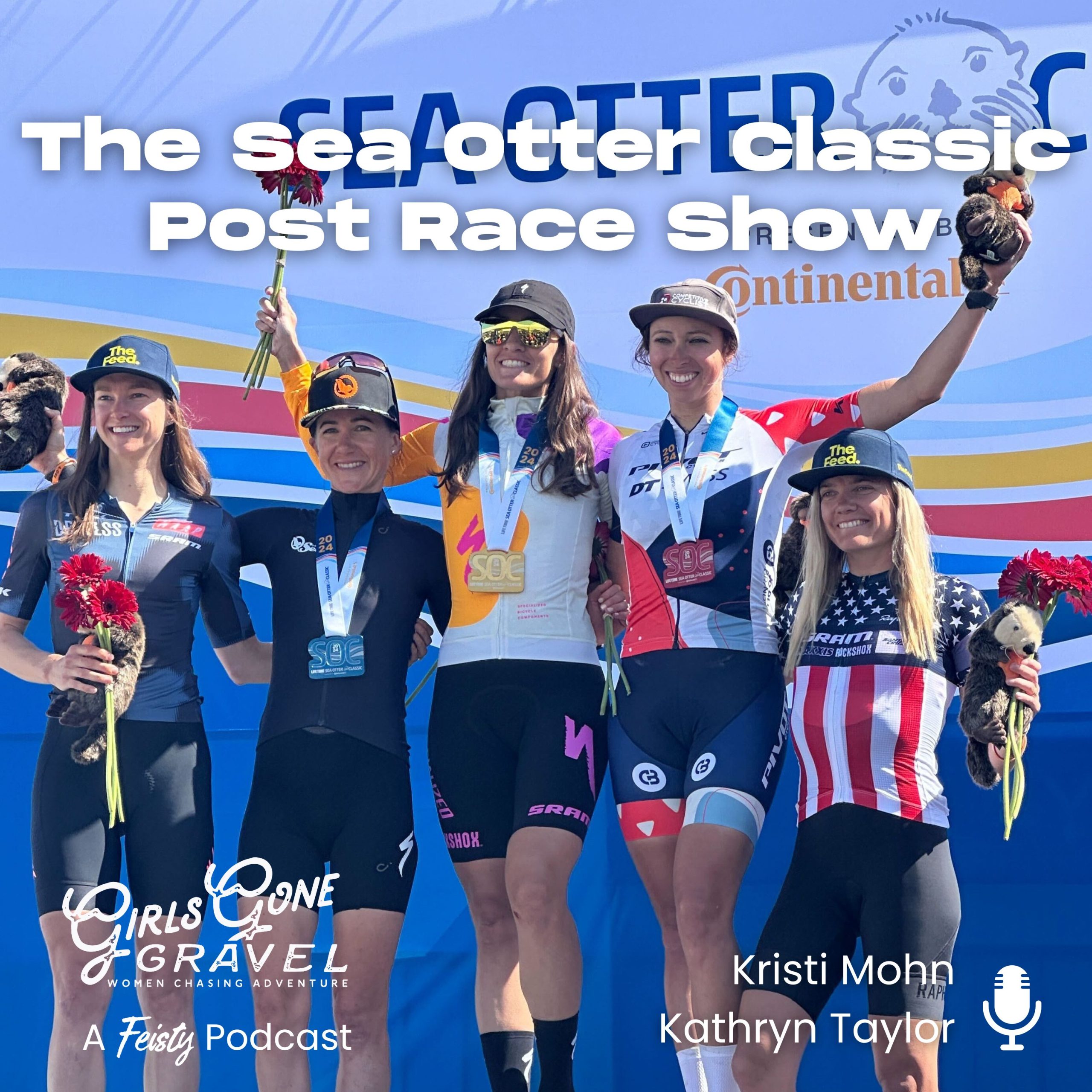August 31, 2022
How to Survive – and Thrive – During the Menopause Lifequake

“The change” can upend your performance and identity. Here’s how to find solid ground.
By Selene Yeager
I am a runner. I am a triathlete. I do CrossFit. I’m a rower. Many of us identify with the activities that we’ve always done…maybe for our whole lives. And then we hit the menopause transition, which can blindside us with hurdles that make those things we’ve always done harder and lead us to question who we are.
That’s what makes the menopause transition what some life coaches and psychologists call a “lifequake”. And it’s something that impacts everyone from recreationally active women to seasoned pros, many of whom have spoken openly about these struggles on the Hit Play Not Pause podcast:
“One day I woke up and was out, going on a run, which I normally love. I love running. And I was like, ‘I don’t want to do this. I just don’t feel it.’ And then the next day, I woke up and I’ve got sore ankles and I’ve got sore knees, and my head is fuzzy…It felt like a midlife crisis,” recalled Lynda Rowan who has represented the U.S. and Australia at CTU World Age Group Championships, and has been coaching triathlon for 30 plus years on episode 17, Going Big & Staying Balanced.
“It felt like I was playing Whack-a-Mole with injuries. It was pretty demoralizing to see how my body had just broken down, when I had seen myself as strong and fit. I’d be like, ‘It’s in your head, just go out and do it.’ But it wasn’t in my head. It was in my back and my hip. I felt really sorry for myself,” recalled Nicole Sin Quee on episode 48, Behind the Gram. Sin Quee was 2012 Duathlon National Champion (40 to 44 AG) and ended up stepping away from the sport for a few years to work on her injuries, sort through her hormonal health, and pursue therapy before coming back to become 50 to 54 AG Off-Road Triathlon National Champion in 2021.
“I noticed these days where I’d go climbing and everything should have been fine. But I would just quiver at the base and not have the psych and not have the motivation. I’d just be scared. I felt like I’d gone back 10 years in my climbing career, when I was always scared to lead and afraid of falling…and I had a lot of fatigue and a lot of tiredness…everything would flip my switch, I was either raging mad or wanting to cry. You just feel like you’re going crazy…In the moment you think, ‘Is this it? Is this what it’s going to be now? Am I going to be afraid all the time?’ And that’s terrifying,” legendary Nordic skier and climber Jeannie Wall shared on episode 60 Adventures in Menopause.
Making matters more challenging, many of us use our physical activities as our outlet — our North Star — the one thing we can count on to get us through hard times. When the clouds of menopause roll in, making it hard to do the activity we love in the way we always have and obscures that North Star, it can be that much harder to find our way.
Managing the Menopausal Lifequake
It can be tempting to put your head down and push forward with what you’ve always done, but that often leads to frustration and deeper dissatisfaction. There’s a better, more compassionate way, says exercise physiologist and board-certified health and wellness coach Lisa Hesse, who shared her lifequake management advice in episode 61 “Lifequakes,” Identity Crises & Finding Solid Ground. Here’s what Hesse and others recommend:
Acknowledge that it’s hard. “One of the most powerful tools we have is self-compassion,” Hesse says. That doesn’t mean throwing in the towel by any means. It just means giving yourself some grace as you rally. “It’s acknowledging that this is hard. It’s saying, ‘this is kicking my ass.’ and giving yourself a little tenderness. In that moment, there’s a neurotransmitter shift that happens in the brain. Self-compassion lowers [the stress hormone] cortisol and when we lower cortisol, the neurochemicals that are going to help us be able to manage this challenge increase.”
Build your menopause management system. As with any natural life disruptive event, you want a toolkit to help you manage the menopause lifequake. Because menopause can bring a host of symptoms, it can feel overwhelming to deal with. So, tackle one symptom at a time. If you’re losing muscle and power, incorporate strength training. If hot flashes are making sleeping and training impossible, investigate treatment like hormone therapy. Tackling one symptom at a time can help you feel more in control and may help you give yourself grace as you come to understand that your body is reacting to its changing environment and needs assistance, compassion, and often, patience.
Take the pressure off. Sometimes it’s as simple as taking races or high-pressure events off the table for a while. In that way, you can still participate in the sports you enjoy, just without the anxiety of starting lines and finishing times. “Normally I race a lot, so I took a break from racing, which took away the expectations, and guess what game back? The love of the sport,” Rowan says.
“I gave myself the grace to enjoy life, to feel grateful for movement without needing to go fast. I didn’t have to push myself to get in shape fast for a race. I could just get some joy about being better than yesterday,” says Sin Quee, who eventually found her spark again for age group competition. “Age groups exist for a reason. We’re not supposed to be able to do what we did at younger times of our life.”
In Jeannie Wall’s case, she cut herself some slack and chose different climbing routes and/or partners during periods when she needed a more moderate, fun route without the pressure to perform on a harder route or scary ice climb. She also started practicing more meditation and mindfulness, so if she starts getting frustrated with not being where she wants to be, she can more easily detach from those feelings. “You take your ego out of it and let the thoughts pass through…once you learn that the feeling will pass, it’s a gift.”
Seek new excitement. Maybe you always do a certain race series or the same strength training class. There’s nothing wrong with that unless it stops bringing you joy, you’re only doing it because you think you “should”, and/or you start finding yourself comparing your current self to your former self and/or to all the others there in a negative way. That’s when it’s time to scan the horizon for something new, Rowan says. So if you’re a triathlete, maybe give gravel racing a try. If you like strength training, dip your toes into CrossFit. Plan a hike somewhere beautiful and new.
“Many women in the menopause stage talk about not feeling motivated; feeling a bit lost; not meeting their goals; not getting the same times…That’s when you need a new goal,” Rowan explains. Take a step back and look around. What looks interesting? What have you always thought of trying? Find something that captures your imagination. “If something makes you feel tingly inside, say yes and figure it out.”
Remember who and what got you here. Finally, no matter what activities or sports you are currently doing (or not), you are still the person who did all those things, Hesse says. “The characteristics that made you the athlete that you have been have not gone away…You will always be that athlete whether or not you’re actually on the podium, wearing a medal, or even doing your sport. The strength, hard work, and mindset that got you there is still part of who you are.” And it’s those characteristics that will carry you through.


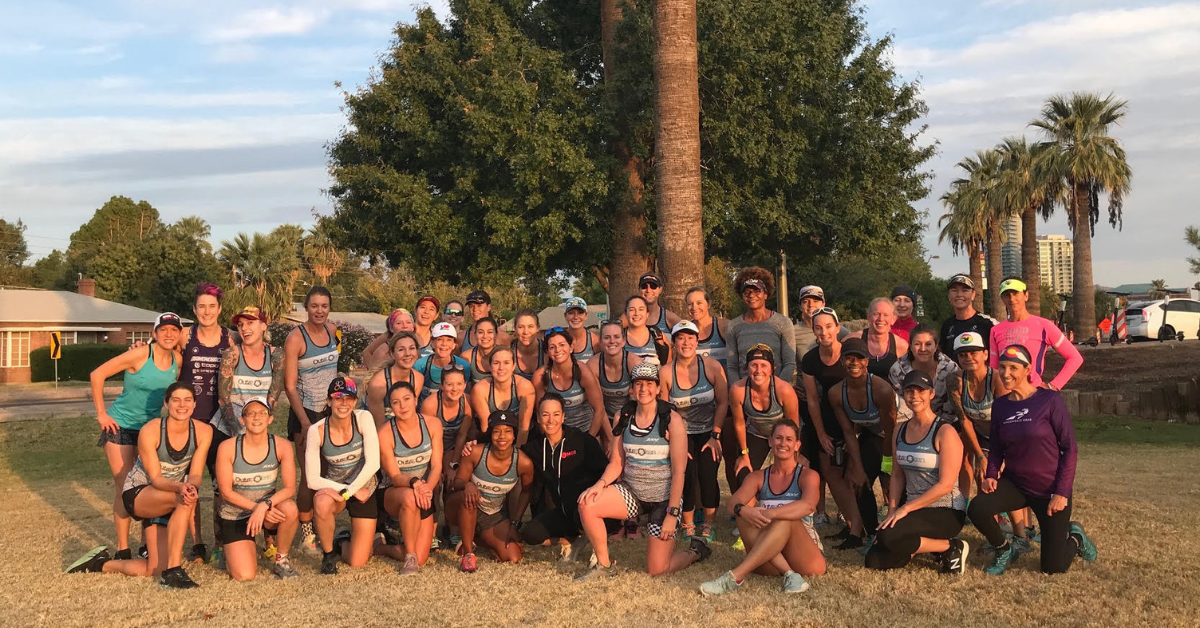 Outspoken Women in Triathlon Summit Returns Bigger than Ever
Outspoken Women in Triathlon Summit Returns Bigger than Ever  Driving the Lamborghini: Productivity and the Power of Paper
Driving the Lamborghini: Productivity and the Power of Paper 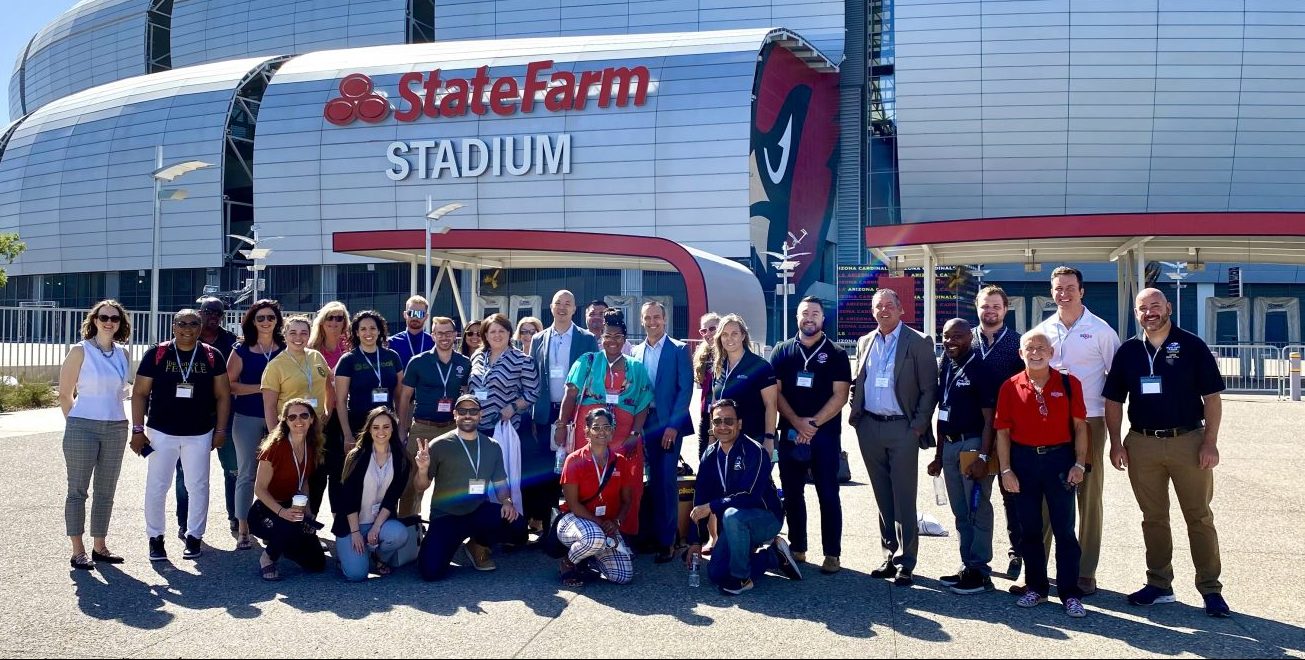 5 take aways from the Compete Sports Diversity Summit
5 take aways from the Compete Sports Diversity Summit 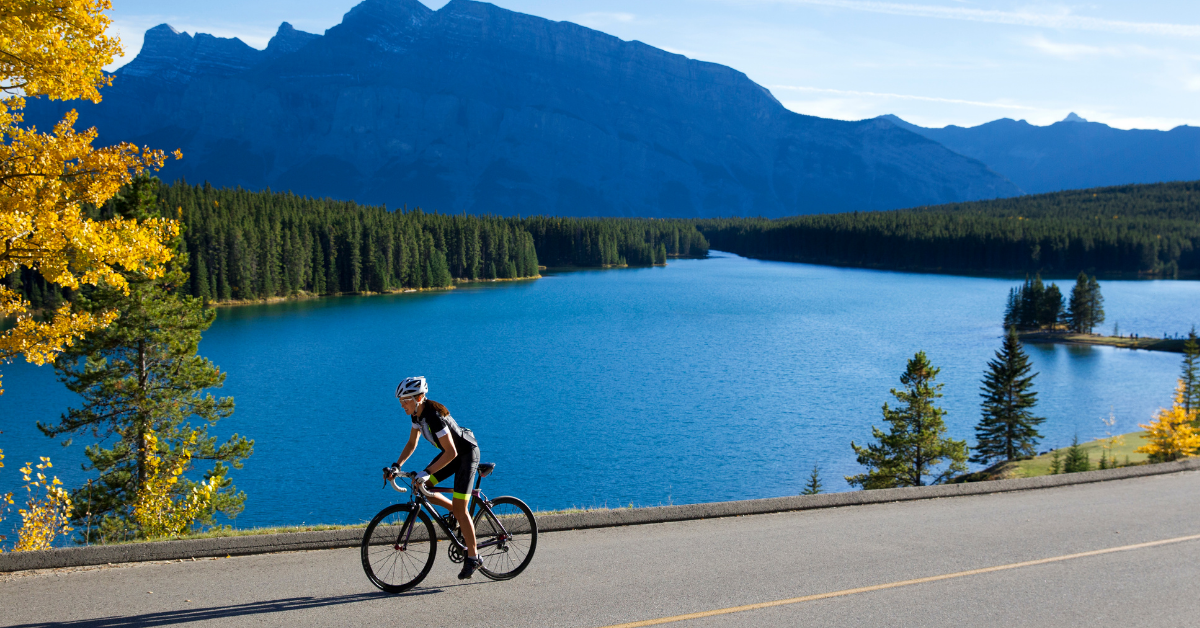 Simple Tips to Hone Your Bike Handling Skills
Simple Tips to Hone Your Bike Handling Skills 